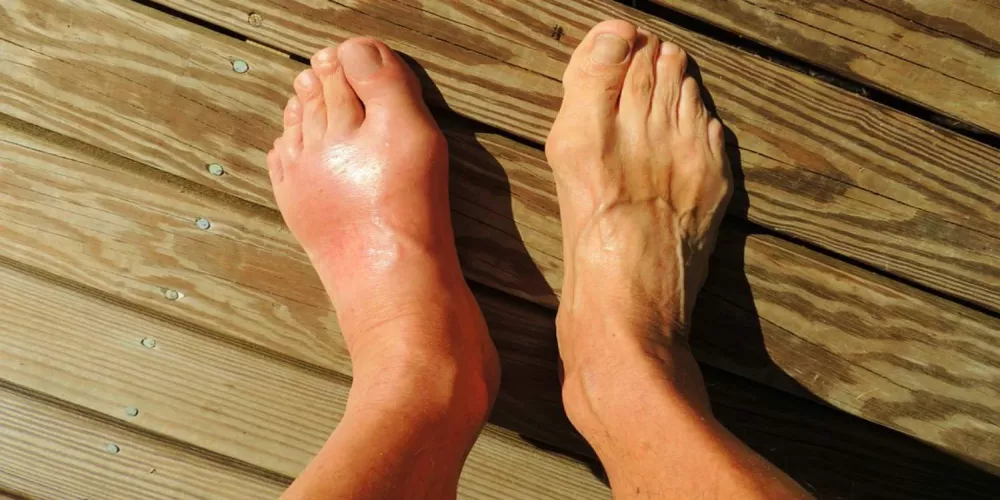London - Saba:
A recent study has shown that genetic factors play a greater role in the development of the inflammatory joint condition known as "gout", contrary to what was previously believed to be related to excessive drinking or not eating enough healthy food.
An international team of scientists conducted this study, which was recently published by the British journal Nature Genetics, and searched for genetic data collected from 2.6 million people across 13 different sets of DNA data. This included 120,295 people with “predominant gout”.
Comparing the genetic codes of people with gout to those without, the team found 377 specific regions of DNA where there were differences specific to the condition – 149 of which had not previously been linked to gout.
While lifestyle and environmental factors certainly still play a role, the findings suggest that genetics play a major role in determining whether someone will develop gout – and the researchers believe there may be more undiscovered genetic links yet to be discovered.
"Gout is a chronic disease with a genetic basis and is not the fault of the person with it – the myth that gout is caused by lifestyle or diet needs to be dispelled," said epidemiologist Tony Meerman of the University of Otago in New Zealand when the study was published last year.
Gout starts when levels of uric acid in the blood rise, leading to the formation of sharp crystals in the joints. When the body’s immune system starts attacking these crystals, it causes severe pain and discomfort.
The researchers state that genetic factors are important at every stage of this process. These factors particularly affect the likelihood that the body’s immune system will attack the crystals, and the way uric acid is transported throughout the body.
Gout may come and go, but there are treatments available — and the study authors believe that misconceptions can prevent people from getting them. That’s a real problem as cases of the condition increase.
"This widespread myth stigmatizes people with gout, making it more likely that some people will suffer in silence and not go to the doctor to get preventative medication that lowers uric acid in the blood and prevents their pain," Meerman said.
In addition to giving us a better understanding of what causes gout, the study gives scientists more options to explore when it comes to treatments, particularly when it comes to managing the body’s immune response to uric acid buildup. In fact, existing drugs could be repurposed for this task.
There are some limitations to the study: the majority of the data was from people of European descent, and some registries relied on self-reporting of gout rather than clinical diagnosis. Still, it gives us a much better sense of a health problem that has been plaguing people for centuries.
"We hope that better and more accessible treatments will become available over time with the new targets we have set," Meerman said. "Gout deserves more health spending and greater priority in the health system."

| more of (Press) |




